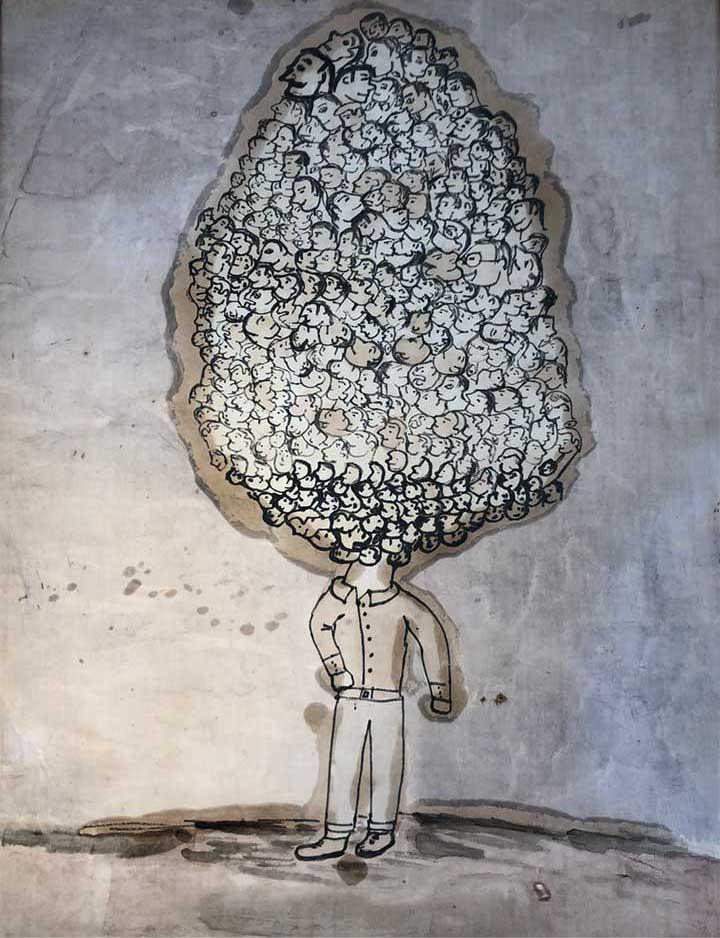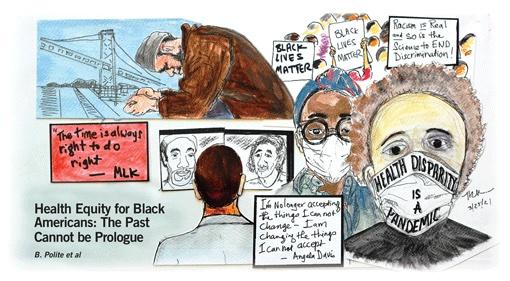
Radiation oncologist Mack Roach, III MD with an insert of original art published in the May 2023 issue of the International Journal of Radiation Oncology, Biology, Physics
Mack Roach, III, MD, FASTRO, has been chosen by the American Society for Radiation Oncology (ASTRO) to receive its 2024 Gold Medal Award. Roach is being recognized with ASTRO’s highest honor for his outstanding contributions to the field of radiation oncology.
Cathy Park, MD
Chair of UCSF Radiation Oncology
Roach is a radiation oncologist, UCSF professor of a Radiation Oncology, and Urology, and an internationally renowned expert on treating and managing prostate cancer. Roach’s major research interest involves new techniques for treating prostate cancer, such as three-dimensional (3D) conformal radiation therapy and intensity modulated radiation therapy (IMRT). His achievements in devising predictive equations and leading significant phase III trials in prostate cancer have positioned him as a key figure in the field with a profound impact on patient treatment protocols. Roach is also considered a foremost authority on disparities in outcomes from cancer treatment in underserved populations.
“Dr. Roach embodies the very essence of the ASTRO Gold Medal through his outstanding contributions to advancing radiation oncology through research, clinical care, teaching, advocacy and service,” wrote Iris C. Gibbs, MD, FASTRO, ASTRO’s Health Equity, Diversity and Inclusion Council Chair and member of ASTRO’s Board of Directors. “His distinguished career, marked by groundbreaking advancements in the treatment of prostate and other genitourinary cancers, as well as his unwavering commitment to research, service, integrity and mentorship, makes him an exemplary recipient of the Gold Medal, ASTRO’s highest honor.”
continues below
Q & A: Dr. Roach discusses his work and the value of art in everyday life.


Original art from Dr. Roach, left to right: "The Tree" by Mack Roach, III, MD, in the International Journal of Radiation Oncology, Biology, Physics on May 1, 2023 — Vol 116, No 1; original art featured on the cover of the Journal of Clinical Oncology Practice in May 2021.
I grew up in San Francisco. My father asked the doctor how old I had to be before we moved to Calif. He said, “one month,” so we left for California when I was 30 days old. I asked my father, now 94, why we left. He told me about Jim Crow racism in
I always enjoyed visualizing things and understanding why things were.
I have published art on several covers of cancer journals, the most recent in a special issue of the JCO Oncology Practice in 2021.
I never met him. I was very honored that he found and appointed me.
I love San Francisco and grew up here as a 49ers, SF Giants, and Warriors fan. I love a place where 85% of people voted against Trump! I could not imagine living in a “Red State.”
Alternative forms of radiation, such a charged carbon ion radiation, as well as research related to the use of biomarkers. Perhaps most important would be to teach people to really read and not to trust poorly done studies.
I am writing a book entitled: Art, Prostate Cancer, Wine, Quotes, Truth, and A.I. The point of the book is that art is the single thing that distinguishes humans from other animals and is a source of strength and inspiration when science comes up short. As a society, we need to value art more.
I am a runner, wine collector, jazz lover, traveler and I do as much art as I can (not much).
continued from above
Roach has made significant, practice-changing contributions to prostate cancer treatment, pioneering the “Roach Formula,” which is the initial equation to estimate the risk of lymph node and seminal vesicle involvement in prostate cancer. He spearheaded the inaugural large-scale phase III trial that utilized prostate-specific antigen (PSA) levels as a measure for outcomes such as progression-free survival and proactively incorporated PSA nadir as a secondary endpoint. Roach has also been instrumental in developing the first model to predict disease-specific and overall survival based on data from prostate cancer patients treated in phase III trials.
He has gained recognition as an authority on treatment planning for prostate cancer and served as senior author for the guidelines for treatment planning by the American College of Radiology. He has begun to pioneer intensity modulated radiotherapy (IMRT), in combination with online portal imaging, and improved dose calculation algorithms that should allow UCSF Radiation Oncology to provide leadership in the field of radiotherapy for many years to come.
“This award is an incredible honor and I thank ASTRO for recognizing the work I have been involved with in treatment, research and heath equity,” said Roach. “I also want to thank my colleagues and my inspiring patients who provide the strongest motivation for advancing our field.”
Roach’s commitment to community service has been demonstrated by over two decades of volunteer work in cancer control efforts and his contributions to reducing health care disparities. His leadership and service have been recognized with numerous awards and honors. In 2012, he was appointed by President Barack Obama to serve a six-year term as the only radiation oncologist on the National Cancer Advisory Board (NCAB), where he was particularly active in the sub-committee on global health. Roach was also awarded an honorary doctorate and a “Candle in the Dark” award from Morehouse College, his alma mater.
Roach has been a member of the UCSF faculty since 1990, rising through the academic ranks to become chair of the Department of Radiation Oncology from 2006 to 2015. He earned his medical degree at Stanford University School of Medicine and did his internship and residency at Martin Luther King Jr. General Hospital in Los Angeles. He completed a fellowship in Hematology-Oncology at UCSF as well as a residency in radiation oncology at Stanford. He also served as chief resident in medicine at Highland Hospital in Oakland.
He is a member of numerous professional organizations, including the American Society of Clinical Oncology, American Society for Therapeutic Radiology and Oncology, Radiation Therapy Oncology Group, National Cancer Institute’s IMRT Working Group, American Joint Commission for Cancer Staging, the American Cancer Society (ACS) Task Force for Cancer Screening Guidelines (prostate cancer) and the NCI Concept Evaluation Panel (prostate cancer phase III trials).
Roach and two other Gold Medal recipients will be celebrated Oct.1 during the awards ceremony at ASTRO’s 66th Annual Meeting in Washington, DC.
ASTRO’s Gold Medal is bestowed on revered members who have made outstanding contributions to the field of radiation oncology. This includes research, clinical care, teaching and service. Recipients are drawn from any of the scientific disciplines represented by the members of the Society.